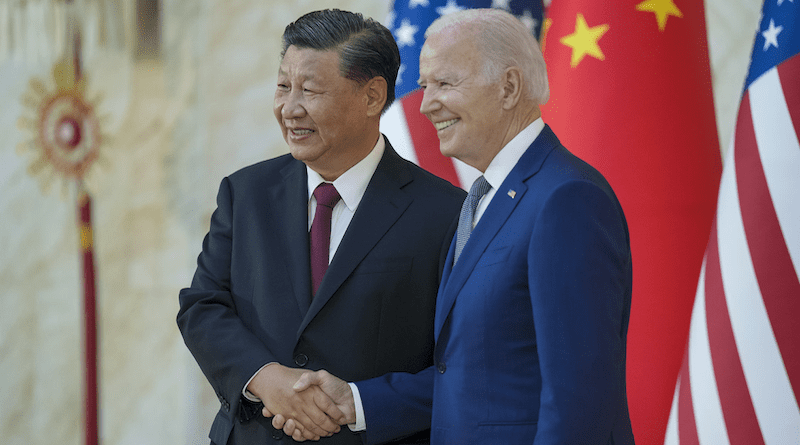Congress Urged To Streamline China Conflict Planning
By RFA
By Alex Willemyns
A congressional advisory group has called for the creation of two new U.S. government bodies to plan for economic sanctions and supply chain management in the event of a conflict with China.
Western sanctions on Russia after its invasion of Ukraine have highlighted for Chinese President Xi Jinping the strategic exploitability of trade dependence, the U.S.-China Economic and Security Review Commission said Tuesday in its annual report.
Amid growing tensions in U.S.-China relations, that’s led to a top-down reorientation of strategic policy in Beijing that has not yet been matched in Washington, the report says.
“Among other measures, Xi Jinping’s so-called ‘dual circulation’ strategy aims to diminish China’s dependence on exports and critical imports, while encouraging Western companies to remain reliant on supply chains routed through China,” it says.
The threat of supply chain disruption by Beijing may be well understood in Washington, the report notes, but there “remains a gap between America’s growing recognition of the challenges China presents and our responses to date in dealing with them.”
To fix that, the commission, which was formed by Congress in 2000 to advise it on China-U.S. ties, recommends in the report that the legislative branch create two new inter-agency bodies within the executive branch to help streamline policy.
The first, known as the Economic and Security Preparedness and Resilience Office, would coordinate moves to diversify U.S. supply chains away from a reliance on China. The second body would be a committee charged with planning sanctions for “a range of possible scenarios, including (but not limited to) a Chinese attack, blockade, or other hostile action against Taiwan.”
“A continuing lack of visibility into critical U.S. supply chains likely masks potential vulnerabilities to disruptions and compromise by Chinese state actors,” the report says, noting a reliance on China “for certain critical global supply chains,” such as rare earths and pharmaceuticals could prove dangerous in a conflict.
“Chinese leaders are aware of their supply chain strengths, as well as their weaknesses, and they are taking active measures to limit their own vulnerabilities and sustain and enhance their leverage over certain U.S. supply chains,” it says.
Unveiling the report in the Senate on Tuesday, Alex N. Wong, the chairman of the commission, said Xi’s recent saber-rattling about the prospect of an invasion of Taiwan and the worsening global geopolitical situation indicated Congress should act quickly.
“The Ukraine conflict is a sobering reminder that war by – and between – major powers is a real threat in the present day,” Wong said. “That should force us, with new urgency, to realistically evaluate how to reduce our own dependence on China for critical goods, how to bolster our means for deterring conflict, and how to build strong coalitions to respond to conflict and coercion.”
Kimberly T. Glas, the vice chair, said China’s priorities after observing “the difficulties that Russia is presently encountering” made clear that Xi is “preparing China to resist future international rebuke and sanctions” in the event of a Taiwan invasion.
“Xi Jinping has been unequivocal in promoting an economic vision that aims to diminish China’s dependence on exports and critical imports, while encouraging the world’s companies to remain reliant on supply chains routed through China,” Glas said, calling for the United States to similarly act to reduce any “excessive dependence on potentially hostile foreign powers.”

